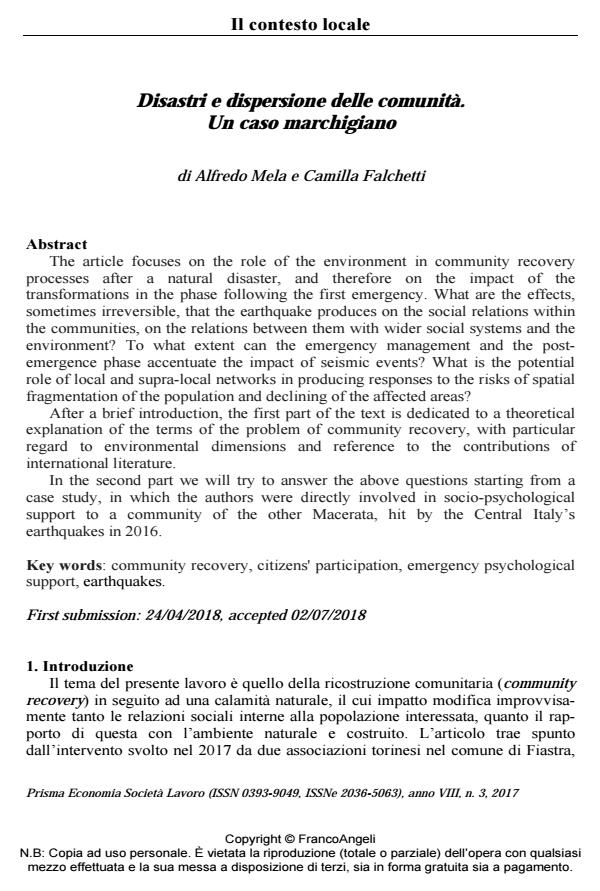Disastri e dispersione delle comunità. Un caso marchigiano
Titolo Rivista PRISMA Economia - Società - Lavoro
Autori/Curatori Alfredo Mela, Camilla Falchetti
Anno di pubblicazione 2018 Fascicolo 2017/3
Lingua Italiano Numero pagine 13 P. 45-57 Dimensione file 447 KB
DOI 10.3280/PRI2017-003004
Il DOI è il codice a barre della proprietà intellettuale: per saperne di più
clicca qui
Qui sotto puoi vedere in anteprima la prima pagina di questo articolo.
Se questo articolo ti interessa, lo puoi acquistare (e scaricare in formato pdf) seguendo le facili indicazioni per acquistare il download credit. Acquista Download Credits per scaricare questo Articolo in formato PDF

FrancoAngeli è membro della Publishers International Linking Association, Inc (PILA), associazione indipendente e non profit per facilitare (attraverso i servizi tecnologici implementati da CrossRef.org) l’accesso degli studiosi ai contenuti digitali nelle pubblicazioni professionali e scientifiche.
The article focuses on the role of the environment in community recovery processes after a natural disaster, and therefore on the impact of the transformations in the phase following the first emergency. What are the effects, sometimes irreversible, that the earthquake produces on the social relations within the communities, on the relations between them with wider social systems and the environment? To what extent can the emergency management and the postemergence phase accentuate the impact of seismic events? What is the potential role of local and supra-local networks in producing responses to the risks of spatial fragmentation of the population and declining of the affected areas? After a brief introduction, the first part of the text is dedicated to a theoretical explanation of the terms of the problem of community recovery, with particular regard to environmental dimensions and reference to the contributions of international literature. In the second part we will try to answer the above questions starting from a case study, in which the authors were directly involved in socio-psychological support to a community of the other Macerata, hit by the Central Italy’s earthquakes in 2016.
Parole chiave:Community recovery, citizens' participation, emergency psychological support, earthquakes.
Alfredo Mela, Camilla Falchetti, Disastri e dispersione delle comunità. Un caso marchigiano in "PRISMA Economia - Società - Lavoro" 3/2017, pp 45-57, DOI: 10.3280/PRI2017-003004